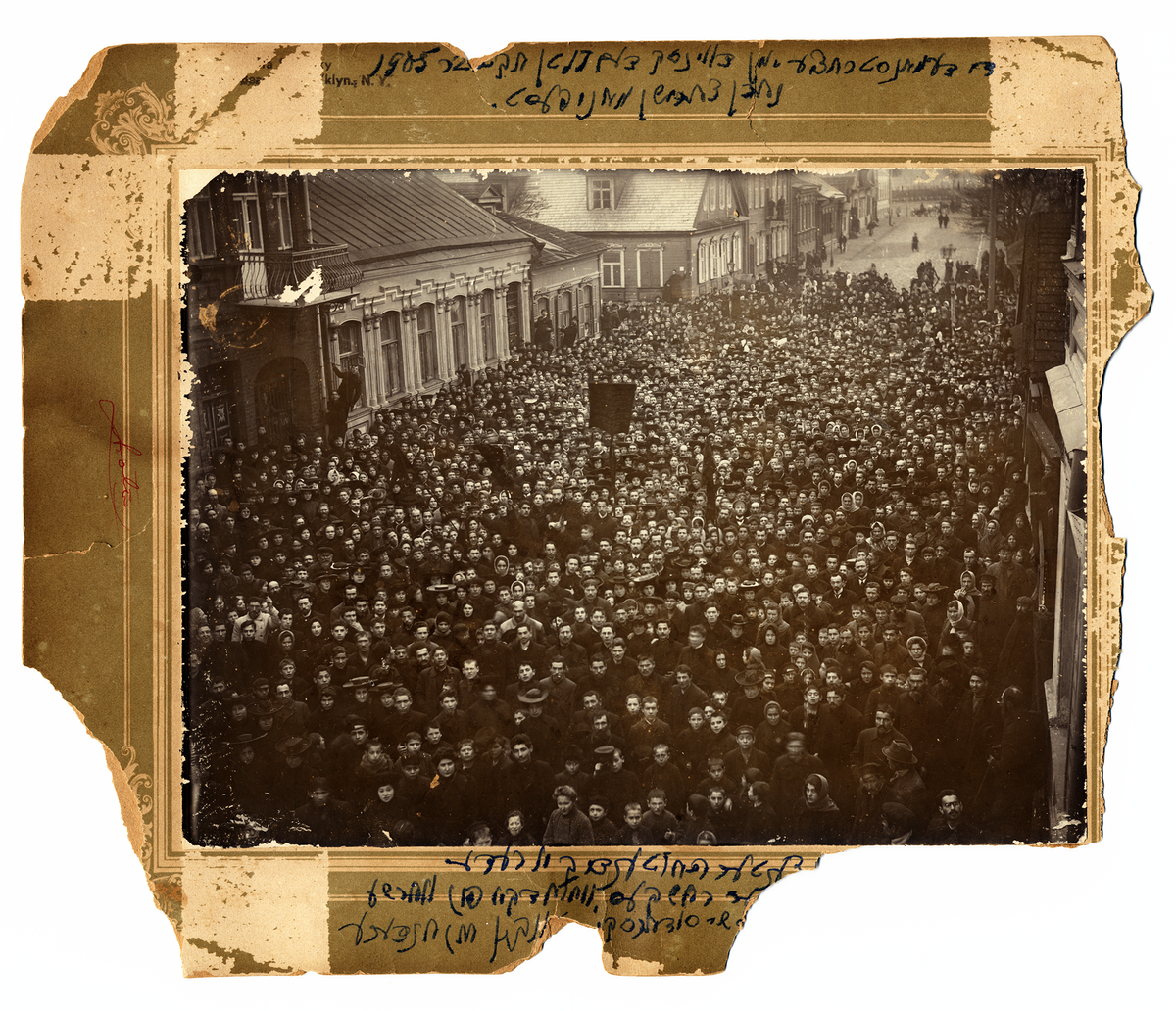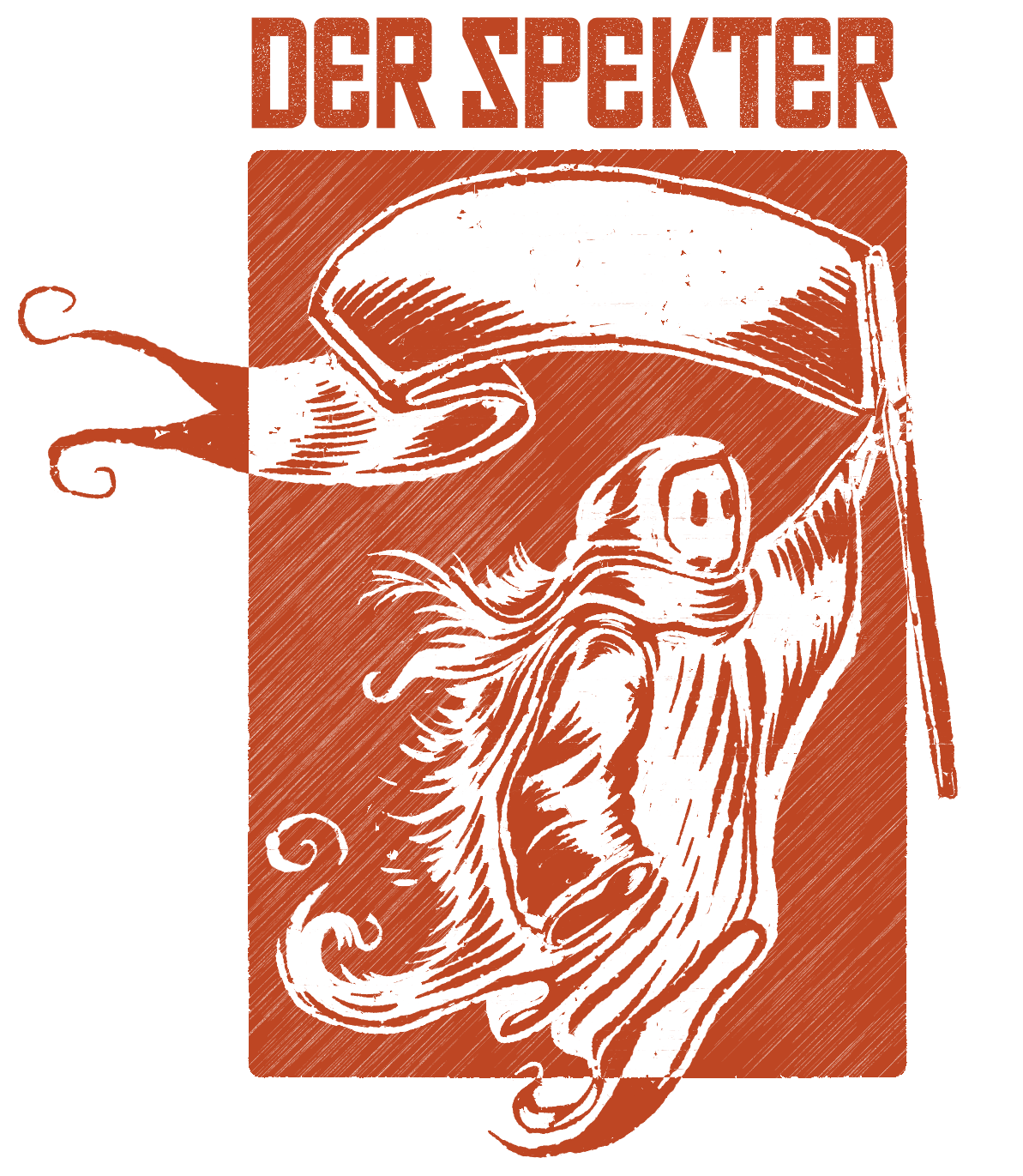Bundism Today: A Case for Jewish Autonomist Diasporist Socialism
A case for rebuilding the International Jewish Labor Bund in 2025 -- beyond admiration for its historical legacy.

To Bundists everywhere:
Why is the Bund relevant? Beginning with this loaded question will unfortunately leave some readers in the dark. As much as I like to speak about what the Bund was as a mass movement, I simply cannot delve into this subject further here. The most I can do is to share a few useful introductory resources, including the infographic I co-authored recently for Cafe Bund, our Bundist project in Kraków, Poland.
I believe the Bund can remain a source of inspiration for those who have delved into the history of the Bund, its great successes and undeniable failures, triumphs and tragedies. Whether they come to it as a result of familial connections, academic research, or political alignment – the Bund is a northern star, visual evidence of a past that no longer exists, seemingly close enough to connect with but also beautiful from a distance, where many of the daily dirty practical realities are not visible anymore. This leaves us to project what we imagined the Bund to be.
Appreciation for the Bund’s historical mission and legacy does not necessarily translate into the desire to rebuild the Bund as a transnational organization today. Indeed, some academics may feel more comfortable conducting analysis on a historical, rather than a current, movement. Thus they may describe themselves as "Bundologists" rather than “Bundists.” Jewish life can no longer justify the existence of such an organization or its re-establishment. Would they have known the term, they may have described it as “LARPing.” Perhaps we can't understand what it was truly like back then.
These reservations notwithstanding, Jewish leftists have in recent years been shyly embracing the Bund’s legacy. Labels such as "Bundist," "neo-Bundist," "Doikayt," and "Diasporist" have become more common and helped break us out of reductionist Zionism-based identification that conflates Jewishness with the State of Israel. The picture of a figure shouting with hands cupped round their mouth, based on a 1917 Bund election poster in Ukraine, has been used for Jewish leftist demonstration signs, social media graphics and stickers. Individual writers, bringing forth the history of the Bund to a popular audience and out of academia (though much work remains to be done in that regard), have done so with the recognition that the ideas of the Bund remain relevant today for both Jews, other minorities, and the broader left. Although this is certainly a positive development, much of the analysis presented so far remains, in my opinion, mostly limited to utilizing slogans such as "Wherever we live, that's our homeland" or "Always side with the oppressed, never with the oppressor."
This would not be such a pressing issue if Bundist organizing remains limited to some slogans, borrowed terms and ideas. However, the past year has seen the emergence of a project with the chutzpah to claim the mantle of the International Jewish Labor Bund. While quickly generating a significant interest, with hundreds of people signing up, the lack of structure beyond a disorganized and unstructured jumble of instant messaging chats has produced significant organizing challenges. After all, any group of people can claim themselves to be "The Jewish Labour Bund." But if we are to claim descent from the organisation founded in 1897, there needs to be a sense of structure, scope and legitimacy to the effort. Additionally, it must fit into the movement ecosystem of the Jewish left — not simply exist for the sake of existing, but to fill a role that current formations and institutions do not.
The Provisional Steering Committee (PSC) of the International Jewish Labor Bund (IJLB), of which I am one of the first four members, has, since its election in November 2024, begun the painstaking-yet-so-satisfying process of establishing the scaffolding to turn the transnational "blob" of interested Bundists into a functioning organisation. We call on all those who are interested in contributing to this effort at a local or transnational level to join us.
The emphasis on structural organizing has resulted in our limiting ideological debates in our initial efforts. While they are certainly exciting, to attempt to start our work with those debates would be a perilous game. What decisions have been agreed on have been to first establish broad outlines that will be further discussed in detail. Just as the original Bund, we can take time to crystallize our positions, change our minds along the way, and encourage internal and public debate, tolerating different currents within the organization.
I have spoken and written about Bundism today on previous occasions, but I wish to articulate my thoughts on contemporary Jewish leftist politics in greater detail. The Bund, along with its Sephardic equivalent in Salonica, remains my primary inspiration. Not as some futile attempt to claim that the realities of Jewish life today are not drastically different to those from a hundred years ago (they are) and that Bundist organizing does not require significant adaptation (it does) but simply because the Bund is inspiring enough, and conditions are similar enough, to make the effort worthwhile.
Importantly, while our organizing effort takes on the name of the Bund, benefiting from its historical legacy and a claim to legitimacy as a direct successor, I believe that the label under which we organize remains secondary to our vision. Even if the Bund had never existed, I believe that the case I wish to outline would be just as much based on the material conditions of Jewish life in 2024.
That is why, starting from today, I will be publishing a series of essays to appear regularly in Der Spekter, each based on a specific subject:
- Organising Principles
- Yiddishkayt
- Doikayt
- Khavershaft
- Israel-Palestine
- Antisemitism
Each of these essays will include references to the historical approaches of the Bund to justify my arguments. I will make all the proper efforts to cite works when referencing the past — this is not only because I will always remain a historian at heart, but also because I do not want to create the illusion that all my arguments are based on the historical Bund. To cloak my own personal experiences and opinions in the name of the Bund would be disingenuous. As mentioned above, with the current priority given towards practical organizing, I have chosen to begin with outlining some useful principles that will benefit further ideological deliberations. These will be done along the lines of the three 'pillars' of the Bund – although these are more based on recent understandings rather than some ancient Bundist mantra.
Lastly, I will focus directly on the two revolving issues of modern Jewish politics — Israel-Palestine and antisemitism. Since they are always put under such a spotlight, I think that they can wait a bit. While I recognize the importance of the current moment and the need to struggle for Palestinian liberation, equality and justice, I wish to write from a systemic perspective, which won't produce a much different analysis in the span of a few months. In any case, my position on Israel-Palestine can be easily found on record, and these essay outlines will not be rigid walls — many subjects escape easy categorization.
Finally, I would like to explicitly stress that my writings here represent a perspective that is mine and mine alone, and in no way should be taken as the stance of the Provisional Steering Committee, Der Spekter, or any other Bundist organizing effort I partake in. That being said, I hope to contribute to a necessary conversation and welcome all constructive feedback. This is A CASE, not THE CASE.
Let's build the Bund.





